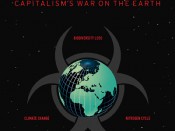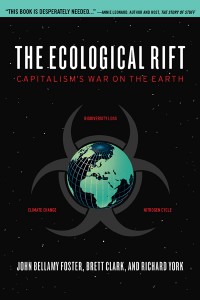This book is desperately needed, because it ends any illusion that we can solve our pressing environmental crises within the same system that created them. With tweaking the system—using incremental market-based strategies—off the table, we can put our efforts into genuine, lasting solutions.
—Annie Leonard, author and host, Story of Stuff
Marx’s concept of ‘metabolic rift’ in the circulation of soil nutrients between countryside and town is generalized by Foster, Clark, and York to an insightful Marxist analysis of the current ecological rift between modern capitalism and the ecosystem. It is a scholarly, well-referenced, and important contribution.
—Herman E. Daly, Professor Emeritus, School of Public Policy, University of Maryland and author, Beyond Growth
This important book treats industrial capitalism as the globally destructive force that it is, and powerfully points the way toward, as the authors put it, ‘universal revolts against imperialism, the destruction of the planet, and the treadmill of accumulation.’ We need these revolts if we are to survive. This book is a crucial part of that struggle.
—Derrick Jensen, author, Endgame and The Culture of Make Believe
This timely new work promises to become a basic resource in understanding the incompatibility between capitalism and ecology, and also in arguing for the ecological dimensions of any future socialism.
—Fredric Jameson, Professor, Duke University; author, Valences of the Dialectic
The Ecological Rift deserves to—and needs to—become a classic in its field.
—Simon Butler, Links International Journal of Socialist Renewal


